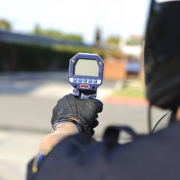Beat Virginia Speeding Tickets with David A.C. Long: Your Trusted Legal Ally
Speeding tickets can be a major inconvenience, leading to fines, increased insurance rates, and even the suspension of your driving privileges. If you find yourself facing a speeding ticket in Virginia, hiring an experienced attorney can make all the difference in the outcome of your case. David A.C. Long, a reputable and accomplished lawyer specializing in traffic violations, has a proven track record of helping individuals fight their speeding tickets successfully. This article will explore why you should consider hiring David A.C. Long to handle your Virginia speeding ticket case.
Expertise in Virginia Traffic Law:
Navigating the complex realm of Virginia traffic law requires comprehensive knowledge and experience. David A.C. Long deeply understands the state’s traffic laws and regulations. With his expertise, he can carefully analyze your speeding ticket’s circumstances and identify potential legal loopholes or procedural errors that can be leveraged to your advantage.
Personalized Legal Representation:
One of the key benefits of hiring David A.C. Long is his commitment to providing personalized legal representation. He recognizes that every speeding ticket case is unique and requires an individualized approach. By thoroughly examining the details of your case, he can develop a strong defense strategy tailored to your specific circumstances. This personalized attention increases the likelihood of obtaining a favorable outcome, such as reduced charges, dismissed penalties, or minimized impact on your driving record.
Extensive Experience in Traffic Violations:
David A.C. Long has dedicated much of his legal career to representing clients in traffic violation cases, including speeding tickets. His extensive experience allows him to anticipate the tactics employed by law enforcement officers and effectively challenge the evidence presented against you. Whether it involves scrutinizing radar calibration records, examining witness statements, or cross-examining police officers, David A.C. Long’s expertise can make a substantial difference in building a robust defense on your behalf.
Negotiation Skills:
Negotiation is crucial in many speeding ticket cases in achieving a favorable outcome. David A.C. Long possesses exceptional negotiation skills honed through years of experience advocating for his clients. He understands the intricacies of the legal system and can leverage his professional relationships with prosecutors to seek reduced charges or alternative penalties. With his guidance, you may be able to avoid the long-term consequences associated with a speeding conviction.
Peace of Mind:
Dealing with a speeding ticket can be stressful, particularly if you are unfamiliar with the legal process. By hiring David A.C. Long, you can enjoy peace of mind knowing that a skilled attorney is handling your case. He will guide you through each step, explaining your options, and ensuring you understand the potential outcomes. By entrusting your case to an experienced professional, you can focus on your daily life while leaving the legal complexities in capable hands.

